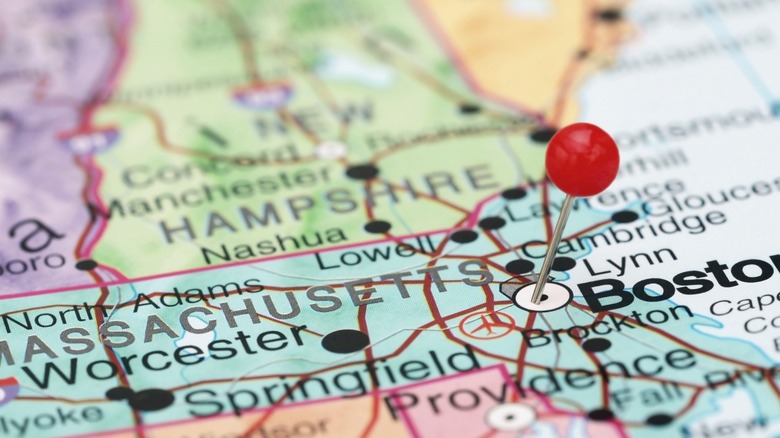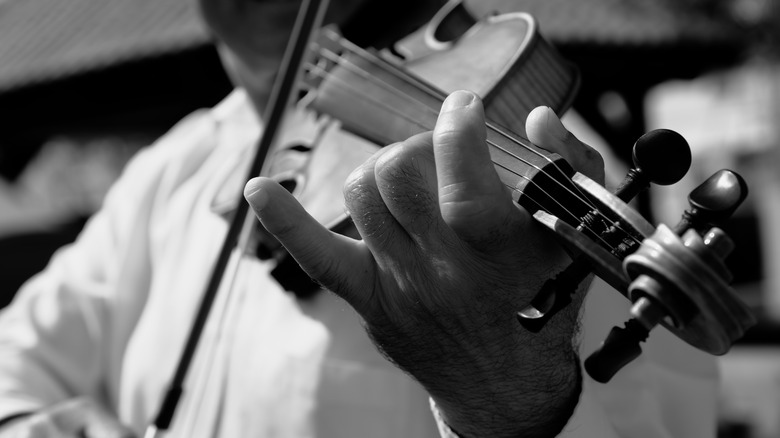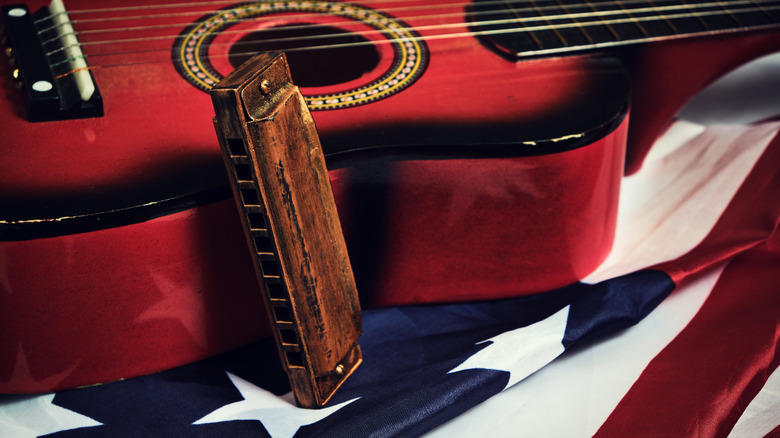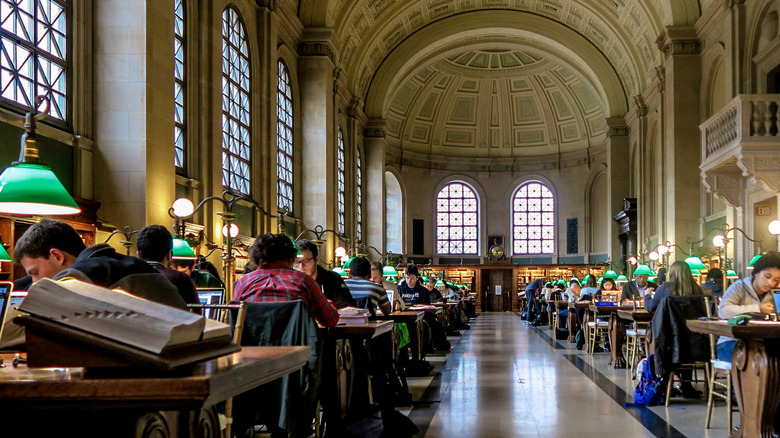Weirdest Laws In Massachusetts
The Commonwealth of Massachusetts, formerly known as the Province of Massachusetts Bay, is one of the oldest states in the nation. It was formally admitted to the Union in 1788. Some of its laws still belong there.
Almost every state retains dozens of antiquated laws on the books, regulating everything from sandwich consumption to blasphemy (via Vox). While state representatives have the power to repeal these laws, the task is almighty, and there's not much to lose politically by keeping them on the books. (There are occasional exceptions. In 2018, Massachusetts state senators Will Brownsberger and Michael O. Moore proposed a bill entitled "An Act Relative to Archaic Laws" before the Massachusetts House of Representatives, successfully overturning the state's ban on fornication.) Nonetheless, scores out of these laws remain active, if not enforced.
Massachusetts bears its own particularly quirky set of legal anachronisms, some of which predate the U.S. Constitution itself. Here are just a few things you may not do in Massachusetts.
Play the Fiddle
In the City of Boston, residents may not play the fiddle. According to a story by WSBS News, an old city law strictly prohibits fiddling. Sound weirdly specific? The prohibition of the fiddle, in particular, is perplexing, but fiddling was popular with early settlers in Massachusetts, and we all know how that colony felt about dancing (via "Old-Time Fiddling"). Alternatively, it's possible the city was once subject to a bout of fiddle-players, and someone got fed up with it.
Was this NIMBYism, religious solemnity, or someone with a personal grudge against string instruments? Is there a backstory that inspired this? Perhaps a fiddle player so horrifically untalented that his music needed to be regulated at the regional level, and the law still stands on the off chance this man may someday come back? None of us can say, but it's illegal to play the fiddle in Boston, Massachusetts.
Celebrate Christmas
When celebrating Christmas in Massachusetts, all practitioners must be ready to face the consequences. According to a 1659 law entitled "Penalty for Keeping Christmas," residents may not take the day off work ("forbearing of labor"), eat hearty Christmas dinners ("feasting"), or be witnessed observing the holiday in any other way. The law says that anyone celebrating Christmas does so "to the great dishonor of God and offence [sic] of others." Other "superstitious" holidays practiced in other countries are forbidden as well.
Celebrations must have gotten rowdy at the Massachusetts Bay Colony. The law was enacted in hopes of "preventing disorders arising in several places within this jurisdiction." Although Christmas was declared a national holiday in 1870, it's still technically against the law in Massachusetts (via New England Today Living). The penalty? Five shillings, or roughly $50 (via Frink). Sit at home quietly, or get ready to pay up.
Remix the Star-Spangled Banner
It is strictly illegal to play or perform the national anthem as "dance music." According to Massachusetts General Law (Part IV, Title I, Chapter 264, Section 9: "National anthem; manner of playing"), the star-spangled banner must be performed as its own composition and may absolutely not be included as part of another musical number. This means no remixes, and no national anthem dubstep. The penalty? You can be fined up to $100.
According to the text of the law on the Commonwealth of Massachusetts website, the Star-Spangled Banner is no joke: "Whoever plays, sings or renders the 'Star Spangled Banner' in any public place, theatre, motion picture hall, restaurant or cafe, or at any public entertainment, other than as a whole and separate composition or number... whoever plays, sings or renders the 'Star Spangled Banner,' or any part thereof, as dance music, as an exit march or as a part of a medley of any kind, shall be punished by a fine of not more than one hundred dollars."
Deface a Milk Carton
Under Massachusetts General Law (Part IV, Title I, Section 266, Section 128: "Milk cans; defacement"), it is illegal to obscure or alter the dealer's name on a milk carton or deface a milk carton in any other way. According to the text of the law itself: "Whoever, without the consent of the owner thereof, knowingly and willfully effaces, alters or covers over, or procures to be effaced, altered or covered over, the name, initial or device of any dealer in milk, marked or stamped upon a milk can, or whoever, with intent to defraud and without such consent, detains or uses in his business any such can having the name, initial or device of any dealer in milk so marked or stamped thereon, shall be punished by a fine of not more than ten dollars."
The reasoning behind the law is easy enough to guess. In earlier times, milk was distributed in bottles or cans stamped with the name of the dairy farm (according to NPR, in some rural regions, it still is). These cartons or jugs are sometimes given back to the distributor so they may be refilled (via The Dairy Alliance). Perhaps distributors were having a problem with bottle theft, or people were "borrowing" a farmer's milk and selling it as their own. Regardless, don't mess with milk cartons. The penalty is $10.
Cause a Disturbance in a Library
Massachusetts is home to dozens of prestigious public and private libraries, from the Franklin Library (founded by the Benjamin bearing that last name) to the impressively massive Boston Public Library, the oldest free library in the United States. Perhaps the state's wealth of literary lending institutions is the reason for this statute in the Massachusetts General Law (Title I, Chapter 272, Section 41: "On the Disturbance of Libraries") banning the willful disturbance of others inside a library building:
The law reads: "Whoever willfully disturbs persons assembled in a public library, or a reading room connected therewith, by making a noise or in any other manner during the time when such library or reading room is open to the public shall be punished as provided in the preceding section." (The preceding section states anyone disturbing an assembly may be fined up to $50 or subject to one month's imprisonment.)
Seriously, do not disturb the peace of Massachusetts' most sacred edifice, or you will go to jail. Libraries are no joke.





